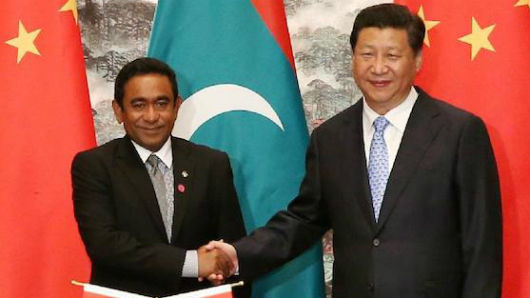China projects worth more than 40% of Maldives GDP
Gateway House says Chinese investments and aid to the Maldives have surged since 2012, supporting multiple housing projects, a power plant, a bridge, water and sewage treatment plants, hotels and airlines.

26 Mar 2018, 09:00
The three largest Chinese projects in the Maldives are worth more than 40 percent of the country’s GDP, according to major new analysis, amid warnings about repayment problems and debt levels.
Gateway House, a think-tank in Mumbai, says Chinese investments and aid to the Maldives have surged since 2012, supporting multiple housing projects, a power plant, a bridge, water and sewage treatment plants, hotels and airlines.
The research says that the three largest Chinese projects are together worth $1.5 billion.
“This will inevitably cause repayment problems, as visible in Sri Lanka, another country deep in debt to China.”
Become a member
Get full access to our archive and personalise your experience.
Already a member?
Discussion
No comments yet. Be the first to share your thoughts!
No comments yet. Be the first to join the conversation!
Join the Conversation
Sign in to share your thoughts under an alias and take part in the discussion. Independent journalism thrives on open, respectful debate — your voice matters.




